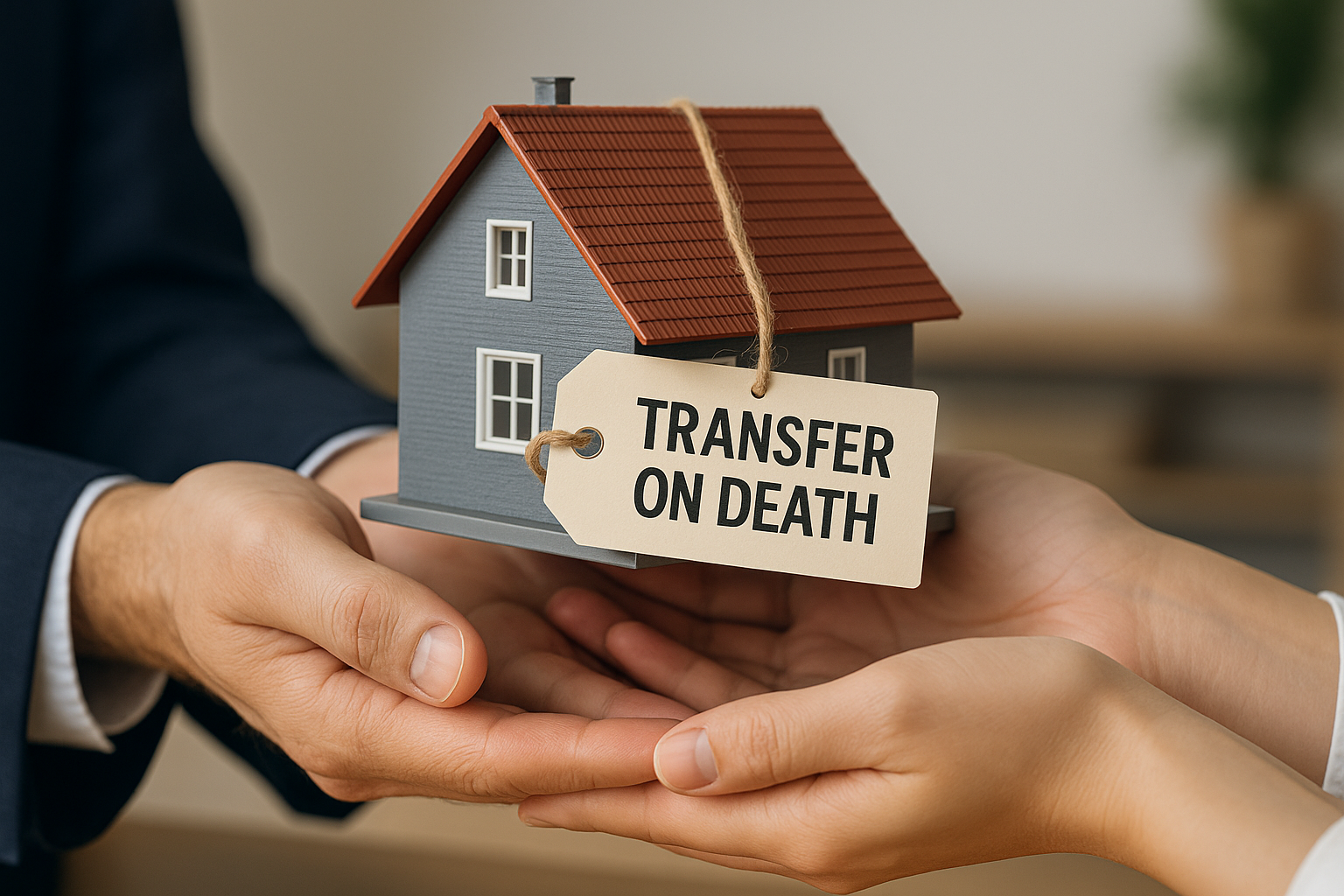Transfer On Death Deed: The Pros and Cons (3 min read)
Imagine this: you want your daughter to inherit your house, but you don’t want her stuck in probate for months (or years). A Transfer on Death deed might be the simple solution!
What Is a Transfer on Death Deed?
It’s a way to pass your real property directly to someone when you die – no probate, no court. The beneficiary simply records the deed after your death.
This sounds great, right? It is, but only for the right situations. There are some downsides that can make it not the best option for everyone, so you really need to take those into consideration.
So, let’s walk through the pros and cons, starting with the positive! (Note, I will be referring to this as a TOD from hereon out).
What Are The Benefits of a TOD?
Step-Up In Basis
In addition to no probate, another bonus with a TOD is that the beneficiary receives a full step-up in the property value basis, the same as they would if the property had been inherited through probate or a trust.
This means the property’s value resets to its current market value when your beneficiary inherits it – helping reduce capital gains taxes if they sell.
What About Other Tax Liabilities?
Gift taxes don’t apply, so that’s awesome! TODs are considered part of the estate for tax purposes – so they’re not included in the amount allowed for lifetime gifting.
And there are no estate taxes, unless the total value of the estate, including the value of the real property, exceeds the federal exemption amount, which in 2025 is over $13 million.
The TOD could possibly trigger a property tax reassessment (meaning, the county could adjust the current tax value based on the value at the time of the transfer), but it depends on state law and usually doesn’t happen.
Do All States Allow A TOD?
No, they don’t. But there are currently around 30 that do, so you just need to check and see if your state is one of them or if it’s in the process of passing legislation that will allow them.
What are the Potential Downsides?
Creditor Claim Period: Even though a TOD avoids probate, creditors are given a generous claim period after your death that can pose issues for the beneficiary.
This is the amount of time allowed for them to file a claim against the property for an outstanding debt. In many states, this is 12 months, but some allow 18 months.
If the beneficiary’s goal is to sell the property quickly, this could have a negative impact due to the following:
Exposure to creditors and Medicaid recovery.
A title company may refuse to issue title insurance until the claim period expires. Most potential buyers of a home will not move forward without a clear title being issued and a mortgage company may not allow a refinance.
Waiting Out The Claim Period: This could mean expenses for the beneficiary that may cause a financial burden, such as:
Property taxes: These still need to be paid.
Homeowner’s insurance: This needs to be updated in the beneficiary’s name to keep the coverage active. A new policy could cause an increase in the insurance amount.
Mortgage payments or HOA dues: If there’s a loan or association, or both, those bills keep coming.
Maintenance & utilities: General upkeep of the property, inside and out, all fall on the beneficiary.
No Conditions Allowed: Although you can name one or more beneficiaries on the property, you can’t direct any special conditions for the inheritance that you might want for a minor or someone with a history of financial issues. A minor would also need to have a court-appointed custodian; you can’t name one in the TOD.
Property Division: You may only be allowed to divide the property equally between beneficiaries.
So When Does a TOD Work Best? Let’s recap the pros and cons:
PROS: Avoids probate - Keeps gift taxes off the table - Step-up in basis = potential tax savings
CONS: Creditors can still make claims for up to 12-18 months - No control over how or when the beneficiary uses the property - Not ideal for minors or blended families
A TOD can be a great tool in situations where none of the above downsides are a concern.
But if your estate includes debt, minor beneficiaries, a blended family, or you want detailed distribution or protection from credit/Medicaid claims, considering setting up a trust or other options might be the best way to go.
Now that you know the basics about a TOD, talk with an estate planning attorney before deciding if this is the right option for your situation. A quick conversation now can save your family a huge headache later.






